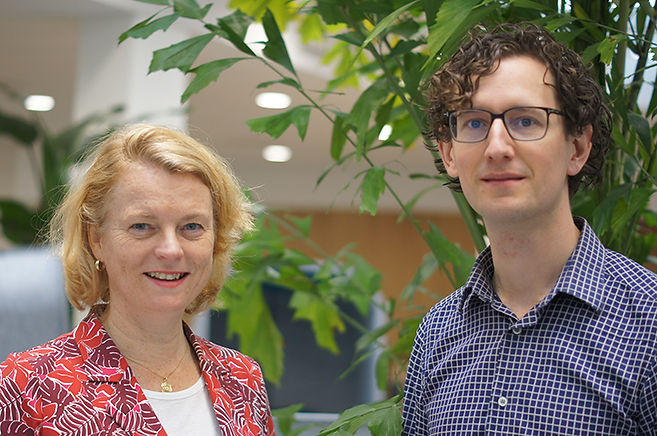
What does IT law have to say about mobility and logistics?
Photo English flag:Image of wirestoc op Freepik
Aline Klingenberg (Professor of Educational Innovation, Data Sharing and Communication Law) and Gerard Ritsema van Eck (Assistant Professor and post-doc IT Law) are involved in the SMiLES project from the Faculty of Law. They look at the issues of mobility and logistics from a legal perspective, in particular from the point of view of IT law.
There are many new developments in the sector, such as autonomous driving, transport via drones, hydrogen-powered ships and data sharing. Legislation is often lacking for all these subjects because they are still in the innovation phase. Aline points out that IT law is always asking what the public values are: What are the most important norms and values of our society that should always apply and be legally protected?
SMiLES
Aline has been officially involved with the SMiLES project from the start in November 2019, but she also helped create the project by writing the proposal and approaching partners from the field. Gerard joined the project in May 2022. It is important for both of them to stay up to date with the priorities of the societal partners in the project, as well as what is happening at other faculties. Aline: “I’ve met a lot of people within RUG and other faculties through SMiLES”.
Some bumps along the road
The project has faced some obstacles along the way. Soon after the kick-off in November 2019, the project faced a lockdown due to the Covid pandemic. “That’s when we noticed that it is much more difficult to make new contacts from a distance,” Aline says. “It would have been easier if we had known each other beforehand.”
There was also a good collaboration with the societal partner Vinturas in the field of transporting cars from the factory to the dealers using block chain technology. The project set up was promising and has resulted in a joint presentation at a TKI Dinalog symposium; however, the company unfortunately wound up filing for bankruptcy in 2022.
Smart lampposts: Is that allowed?
Fortunately, many other things did go well. For example, junior researcher Iris Staalman has
collaborated with the municipality of Oldambt and two student researchers in a study on smart
lampposts. The municipality had been given access to a number of lampposts which various sensors, such as cameras or microphones, could be attached to.
The municipality wanted to use these smart functionalities for combating illegal waste dumping, nightlife nuisance and mapping traffic flows, all of which had to comply with privacy law. By hanging cameras everywhere, more personal data is collected than necessary. “It is like shooting a cannon at a mosquito, and that is not allowed under privacy law” Gerard summarizes.
Demos at KPN
At the moment, Gerard pays regular visits to our societal partner KPN to give demos during the KPN knowledge sessions on Friday afternoons before end of week drinks in the office in Amsterdam. Interested parties can drop in for an update on the legal field.
Future research
There are also great collaborations in the pipeline. For example, next academic year, students will be able to do an internship at the Province of Groningen and conduct research into the possibilities of a fully autonomous Veriport, a place where drones can take off and land vertically. Another student is interested in exploring the possibilities of data sharing between companies. So there are still great studies ahead!
-------------------------------
About SMiLES
SMiLES (Shared Connectivity in Mobility and Logistics Enable Sustainability) is a 5-year sustainability project in the field of mobility and logistics that is funded by working partners in the field, NWO and the Ministry of I&W. Through December 2024, various faculties of the RUG, Hanze and Noorderpoort will be working together with practical partners to research real-world issues related to transport and shipping in living labs.
